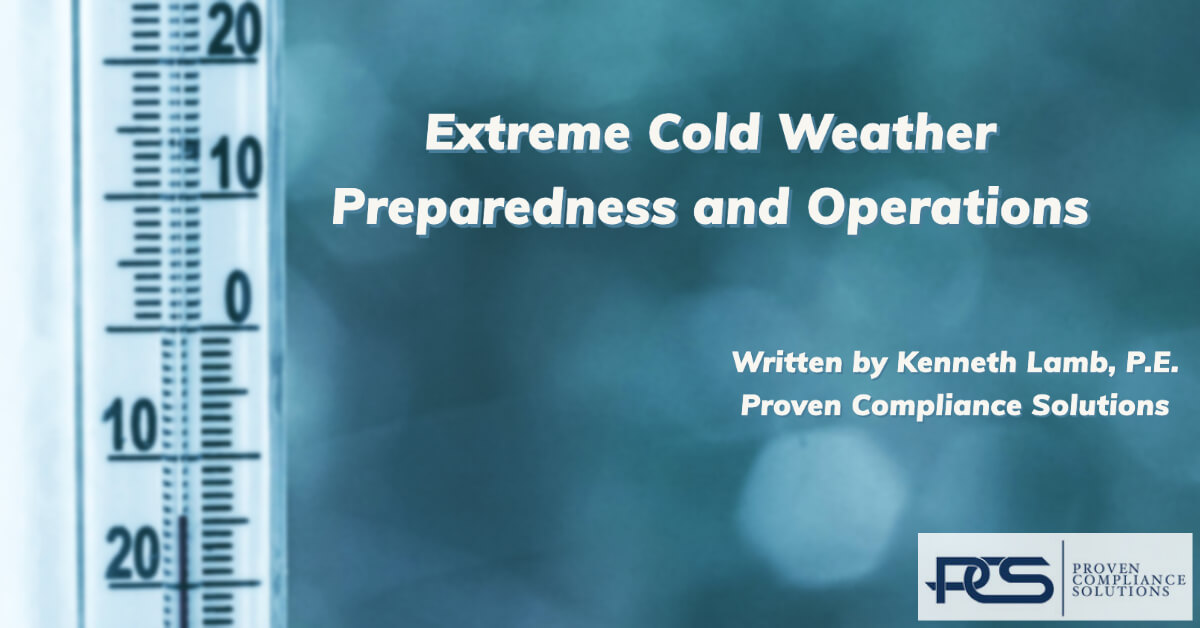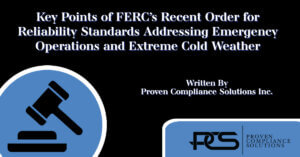Winter Storm Uri was a major coast-to-coast storm that spread extreme cold and precipitation from the Northwest into the Midwest and Southern United States from February 8 to February 20, 2021. The storm created extreme cold temperatures, snow, and damaging ice that significantly impacted Bulk Electric System (BES) reliability for a longer period than the defined storm event. Generator Owners and Operators, Transmission Owners and Operators, Balancing Authorities, and Reliability Coordinators were all significantly affected by the extreme cold caused by the storm. The temperatures and freezing precipitation brought serious challenges to both electric and gas grid operations that resulted in the largest controlled firm load shed event in U.S. history and the third largest in quantity of outaged megawatts (MW) of load after the August 2003 Northeast blackout and the August 1996 West Coast blackout.
Industry-Wide Impacts of Winter Storm Uri
Winter Storm Uri left an indelible mark not only on electric utilities throughout the southern and Texas region, but also on the entire electric industry as well as the natural gas industry. The impact from this event resulted in the comprehensive attention of FERC and NERC. Specifically, the regulating bodies focused efforts to quickly develop standards aimed at increasing generation Facility availability during extreme weather and enhancing focus on Transmission grid reliability during such events.
Project 2019-06: Cold Weather Operational Requirements
Project 2019-06 “Cold Weather” added requirements to Reliability Standard EOP-011-2. The bulk of the modifications to EOP-011 were for Generator Owners to determine cold weather operational limitations, create cold weather preparedness plans, maintain the developed plan, and to provide training on the plan to operations/maintenance personnel. IRO-010 and TOP-003 were modified to add the requirements for Transmission Owners, Balancing Authorities (TOP-003-5), and Reliability Coordinators (IRO-010-4) to include provisions for sharing cold weather operational limitations of BES generating units. These revisions were Board adopted and are scheduled to become effective on 4/1/2023.
Project 2021-07: Extreme Cold Weather Grid Operations and Preparedness
For Project 2021-07 “Extreme Cold Weather Grid Operations, Preparedness, and Coordination” FERC and NERC summarized the entirety of the event in the “The February 2021 Cold Weather Outages in Texas and the South Central United States | FERC, NERC and Regional Entity Staff Report” and generated twelve key recommendations for the industry. The recommendations describe specific tasks and actions designed at improving both generating unit and transmission system reliability during periods of abnormal and extreme weather.
Development of EOP-011-3 and EOP-012-1 Standards
As a result of the published report and its key recommendations a Standards Authorization Request (SAR) was developed to address and incorporate nine of the recommendations within the body of NERC Standards. In February 2022, a Standards Drafting Team was assembled for the purpose of executing this task and met multiple times weekly to incorporate the key recommendations into both existing and a new Standard.
This project resulted in a revision to EOP-011-2 (EOP-011-3 Emergency Operations) which removes the Generator Owner and Generator Operator obligations (R7 and R8) and created a new Standard (EOP-012-1 discussed below) for these registered functions. EOP-011-3 also includes modifications to R1 that focus on ensuring that designated manual load shed has minimized overlap with both critical load and UFLS/UVLS circuits. R1 also includes the requirement for provisions to determine reliability impacts due to cold and extreme weather conditions.
EOP-012-1: New Requirements for Cold Weather Preparedness
The project also included the development of a new Standard, EOP-012-1 Extreme Cold Weather Preparedness and Operations. This Standard dictates the need for design and operating parameters for generation units to account for low temperatures, as well as to consider the effects and potential operational impact of wind and precipitation. It also introduces three new defined terms that are intended to clarify, down to the component level, the applicable unit elements and the prescribed temperature calculation that the Generator Operator will be required to protect once Requirements R1 and R2 of the Standard become effective. EOP-012-1 also incorporates the creation of a Corrective Action Plan (CAP) for any Generation Cold Weather Reliability Event that the Facility experiences. CAP creation, tracking, and disposition is a significant addition to the Standard and creates the obligation for the Generator Owner to execute a documented analysis following any applicable cold weather event. The CAP creation is disproportionate in its obligations across the composition of the North American fleet as the technical rationale for Facilities to implement freeze protection measures is not consistently applicable; therefore, Generator Owners should seek to understand these requirements and how they are applicable to the fleet and each individual generating plant.
Final Ballot Submission for EOP-012-1
The Standard Drafting Team recently submitted the latest version of EOP-012-1 for final ballot to be completed by September 30, 2022. NERC board adoption is anticipated in October 2022. Please note that this final ballot is for Phase 1 of the development process for this SAR.
FERC and NERC’s Continued Efforts on Cold Weather Preparedness
FERC, NERC and the Regional Entities continue to host technical conferences to inform the industry about the developments of the Standards being drafted within the SAR, and to encourage entities to take a broad scale view of their Cold Weather response documents. Cold Weather is a hot topic and will continue to be so as the incorporation of recommendations from The February 2021 Cold Weather Outages in Texas and the South Central United States continue in Phase 2.
How PCS Can Help with Extreme Weather Preparedness and Compliance
PCS continues to actively monitor the developments of this project and is prepared to help you navigate the complexities of extreme weather preparedness. For information on how PCS can support your organization’s NERC Reliability Standards compliance needs, please contact Dale Zahn at (509) 504-5496 or visit our website at www.provencompliance.com.
Proven Compliance Systems’ SCIP: Supporting NERC Standards Compliance
If you’re responsible for monitoring NERC Standards activities and are looking for assistance with this effort, PCS has developed a web-based Standards Compliance Intelligence Portal (SCIP) that identifies standards in development and upcoming standards enforcement that is customized to each client’s needs and NERC registrations. Industry news and events, as well as regional and provincial activities are also tracked. For more information regarding SCIP or any other Reliability Standards compliance needs you may have, please contact Dale Zahn at 509.504.5496 or dzahn@provencompliance.com or visit our website at www.provencompliance.com.






